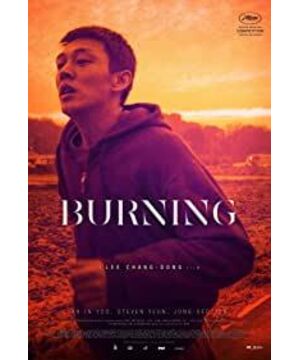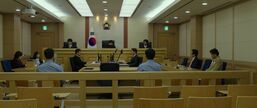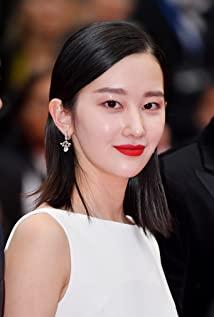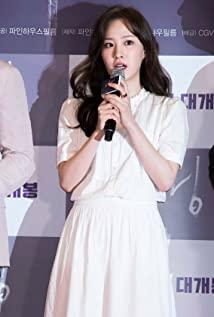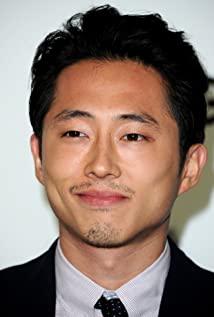"little hunger" refers to people who are hungry, and "great hunger" refers to people who are hungry for meaning people".
The South Korean film "Burning" (directed by Lee Chang-dong), which received the highest score in the history of the Cannes Film Festival last month, continued to be a hit. What exactly does this adaptation of Haruki Murakami's short story "Burning the Barn" have? What's so charming about it?
Go back to Murakami's original work first. The story of "Burning the Barn" can be described as simple: "I" met a girl, and one day, she returned from a trip to North Africa with a boyfriend. This boyfriend told "me" that he had a habit of burning barns, and would burn down an abandoned barn every once in a while, and the next target would be near "my" residence. From then on, "I" checked the surrounding barns every day, but found that none of them had been burned. When they met again, he said it had been "burned". And the girl was never heard from again.
After being adapted into a movie, the location of the story changed from Tokyo to Seoul, and the narrative perspective changed from first-person to third-person. The identity settings of the three protagonists also obviously have "class attributes": Zhong Xiu (played by Liu Yaren), the "second generation of farmers" ("I" in the original work) who did not find a suitable job after graduating from literature and was temporarily a deliveryman. It is a 31-year-old married man who does not worry about making a living); Hui Mi (played by Jeon Jong Sook), Zhong Xiu's childhood neighbor, a "prodigal girl" who works odd jobs and likes to travel (the two in the novel are not young In addition, the film also emphasizes the fact that she owes a high credit card debt, which is not in the novel); This is not a big change, except that the occupation has changed from "trading" to more mysterious, and the hobby of "burning warehouses" has become "burning plastic sheds").
In addition to the addition of "add oil and vinegar" to the story, the film also added "suspense" in the second half. In the novel, "she disappeared", and the story ends here; in the movie, Hui Mi's disappearance can only be regarded as the end of the first half, and in the second half, Zhong Xiu follows Ben to find her, just like a detective. He was convinced step by step that Emi was actually killed, and Ben was the murderer. One detail that needs to be noted is that when Zhong Xiu was sitting in front of the window writing a novel, the camera zoomed out and the perspective changed - it was a limited third-person perspective before, and all the audience saw was Zhong Xiu's perspective; Third-person omniscient perspective. It can be understood that the following stories (mainly Zhong Xiu's assassination of Ben) are the contents of the novels written by Zhong Xiu.
When Zhong Xiu "solved the case", the audience followed the "solve the case" in their minds. But a few things got in the way, leaving the plot confusing. First of all, shortly after the film started, Huimi performed the pantomime "Peeling Oranges" to Zhongxiu. She pretended that there were oranges in the air, and then peeled them. The secret was "forget there are no oranges here." This makes the film have a kind of speculation swinging between "existence" and "non-existence" at the beginning (this is also the tone of the original novel). And the hobby of burning plastic sheds in Ben's mouth-burning the abandoned unattended plastic sheds in the fields, does the "plastic shed" refer to something else (for example, someone like Emi)? In addition, the film also added two elements of "cat" and "well". Maybe the cat named Boil only exists in Emi's imagination? The well that Emi claimed to have fallen into when she was a child (later rescued by Zhong Xiu) might not really exist? All of the above confuse Zhong Xiu and also confuse the audience.
There are various signs (especially Huimei's relics in Ben's bathroom locker) that Ben killed Huimei, and Zhongxiu's "solving the case" has come to an end. But whether he has the courage to avenge his lover is unknown to the audience. However, he finally started writing novels. "Writing a novel" is an important part of the movie "Burning" throughout. Zhong Xiu has not only expressed the fact that he is writing novels to others on one occasion, but he has not written any works yet. Ben once asked Zhong Xiu whose books he likes to read, Zhong Xiu said Faulkner, and later he said that reading Faulkner's novels felt like "writing my story". (Faulkner has a short story "Burning the Horse Barn", which tells the story of a hot-tempered father who gets a lawsuit for burning the barn. The person who has filed a lawsuit.) And the reason for the delay in writing is because "to me, the world is like a riddle".
Ben, one of the "great Gatsbys" ("mysterious young people who are rich for nothing"), also bought a copy of Faulkner's short stories to read. Why he is interested in the writer Zhong Xiu likes is probably another mystery. Maybe just boring. On the day Zhongxiu met Huimei, Huimei told him the definition of "hunger" in the African Bushes, saying that there are two kinds of "hunger", "little hunger" refers to people who are hungry, and "great hunger" refers to the meaning of life. And the hungry, who think all day about "why do we live and what is the meaning of life", they are the "really hungry". And Ben, should be such a person. So when he was assassinated by Zhong Xiu, he hugged him tightly and smiled in return. At that moment, he finally let go.
(Original WeChat public account: Daily Aesthetics)
View more about Burning reviews


